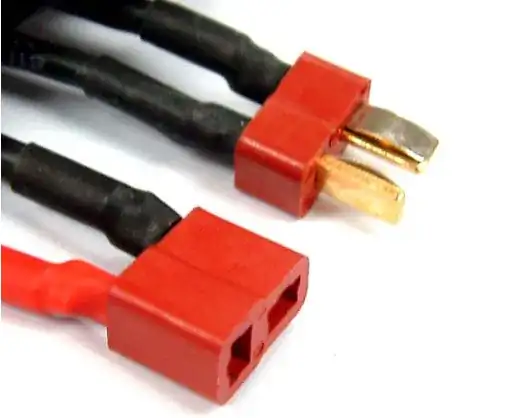I'm making a safety disconnect for an experimental RC craft. It will be tethered to the ground, and if it goes out of control the tether will pull a plug disconnecting the power. I will make the plug from a male Deans connector (pictured below) looped to connect the positive and negative terminals. The female connector will be in line with the battery.
What's the best material to lubricate this connection? I would like the plug to disconnect as smoothly as possible when tugged by the tether. In general, what are the most common connector lubricants that are (a) conductive, (b) will not cause shorts, and (c) not messy?
